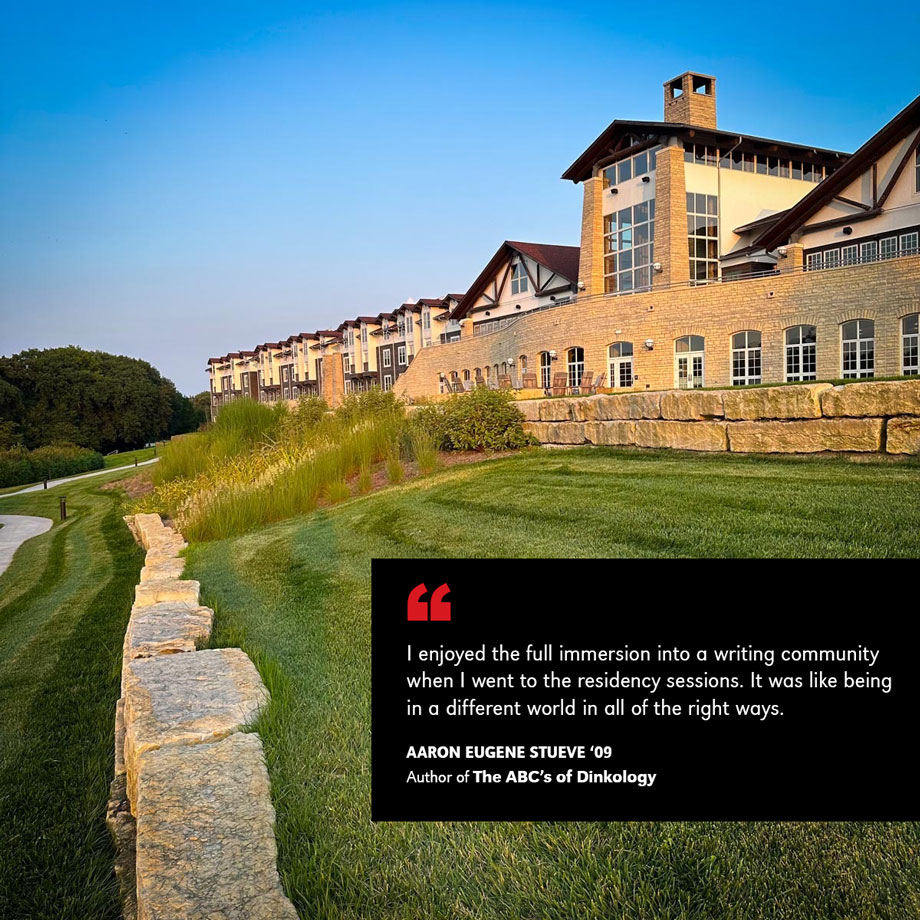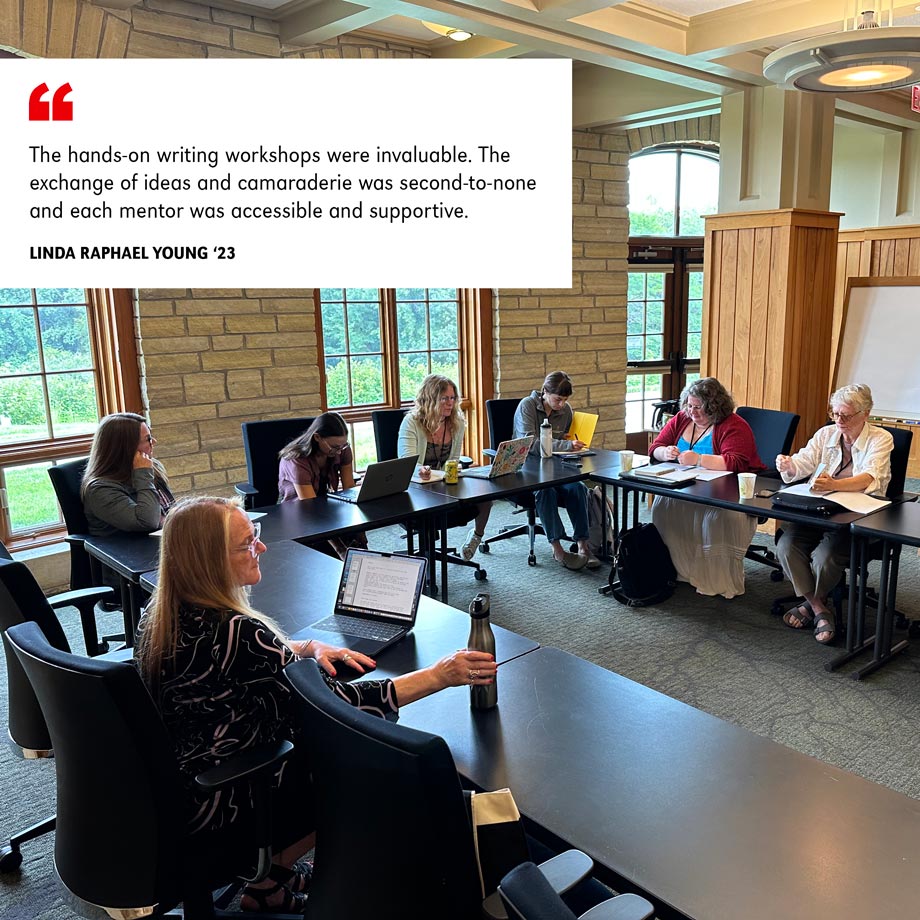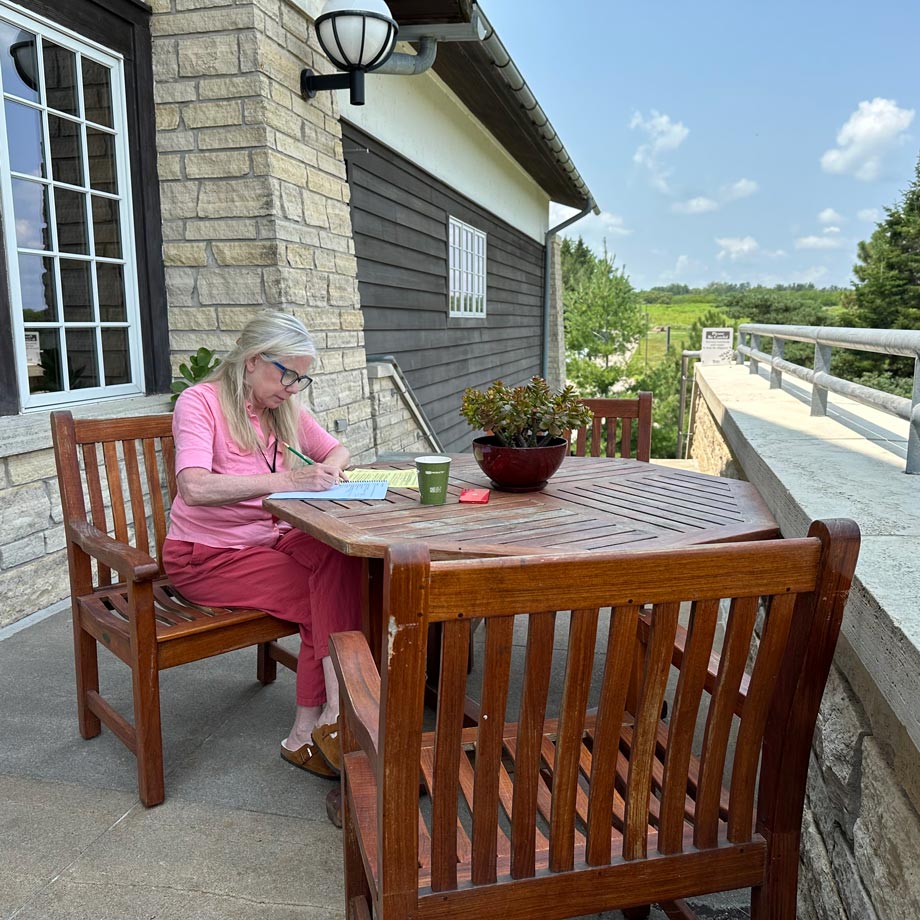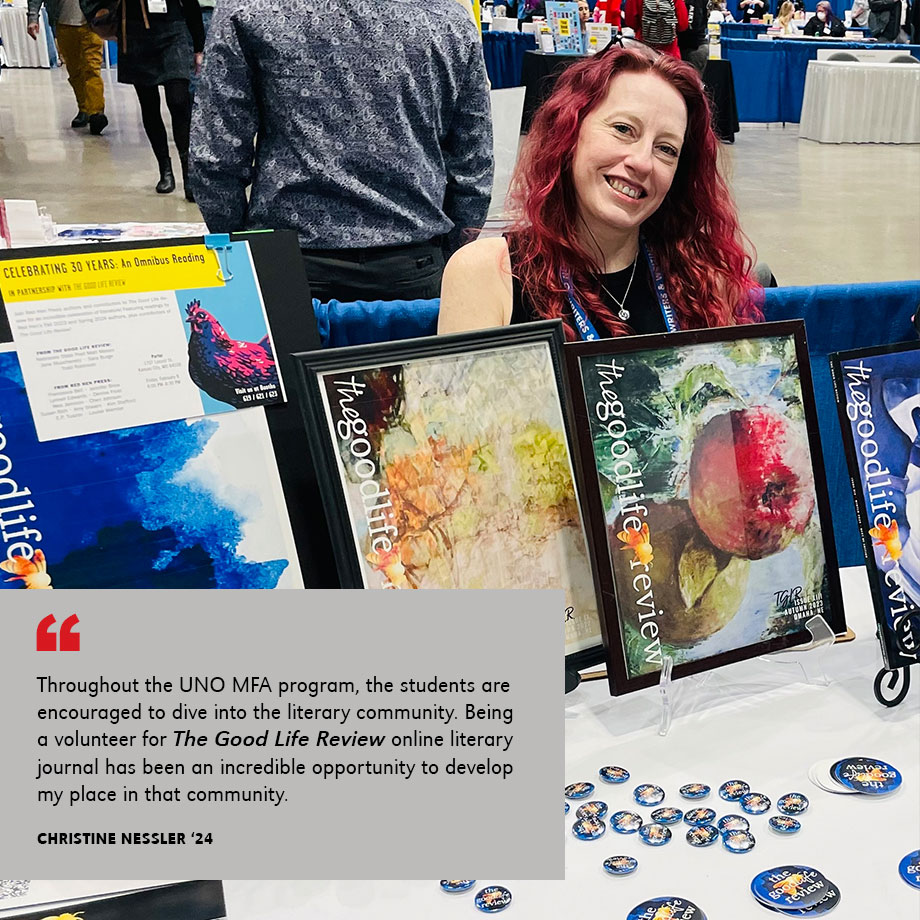
Residency at Lied Lodge
Twice a year, students, mentors, and visiting writers meet for a ten-day residency at the Lied Lodge & Conference Center in Nebraska City. Each residency includes a blend of instructional activities and co-curricular events such as:
- Lectures and craft discussions conducted by faculty and visiting writers
- Small team-taught workshops
- Readings of original work by faculty, visiting writers, and graduating students
- Individual conferences with faculty mentors
The Lied is a full-service facility with free wi-fi, a fine dining restaurant, cocktail lounge, indoor swimming pool, jacuzzi, sauna, and fitness center. All private rooms have work-study areas with internet access, housekeeping, cable television, and mini fridges.
Your residency meals & lodging fee includes lunch, dinner, lodging, beverage service, and participation in daily events.


